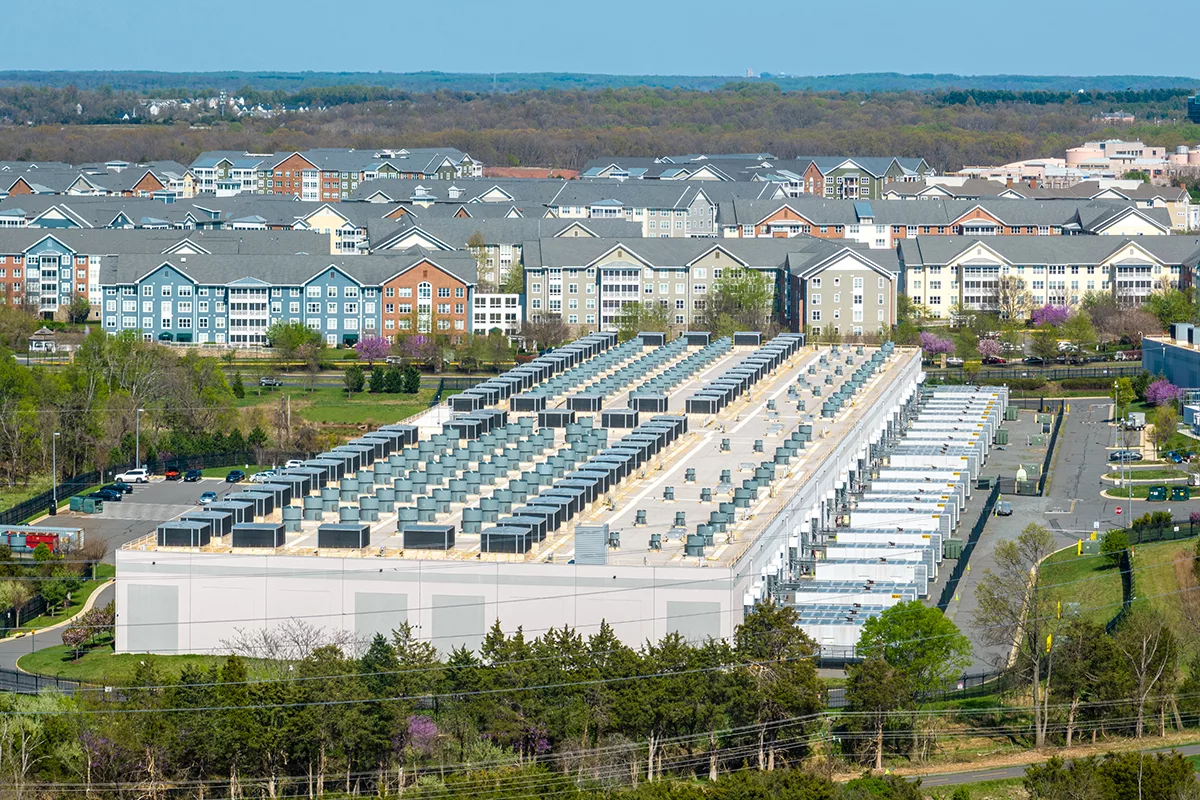Next Tuesday, Mar. 18, the Loudoun Board of Supervisors plans a major vote on its proposed Phase One amendments to the comprehensive plan and zoning ordinance to better manage data center development in the county.
Gem Bingol
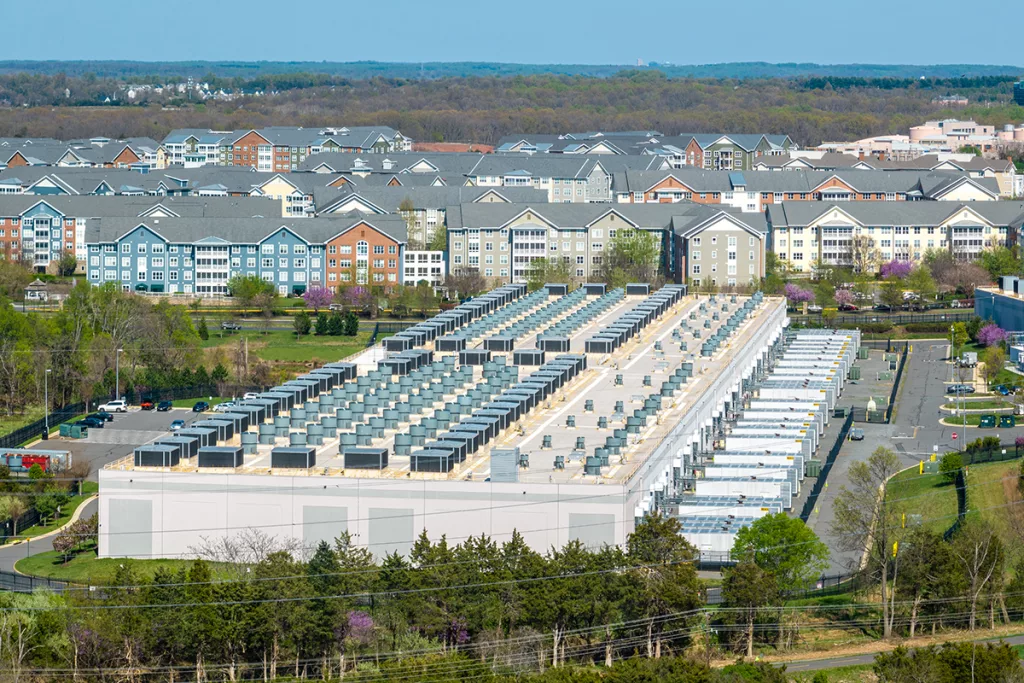
Loudoun Proposes Changes to Get a Handle On Data Center Development
We hope you’ll join us in supporting the proposed comprehensive plan and zoning ordinance amendments in person on Wednesday, Feb. 12 at 6 p.m. at the County Building, 1 Harrison St., Leesburg.
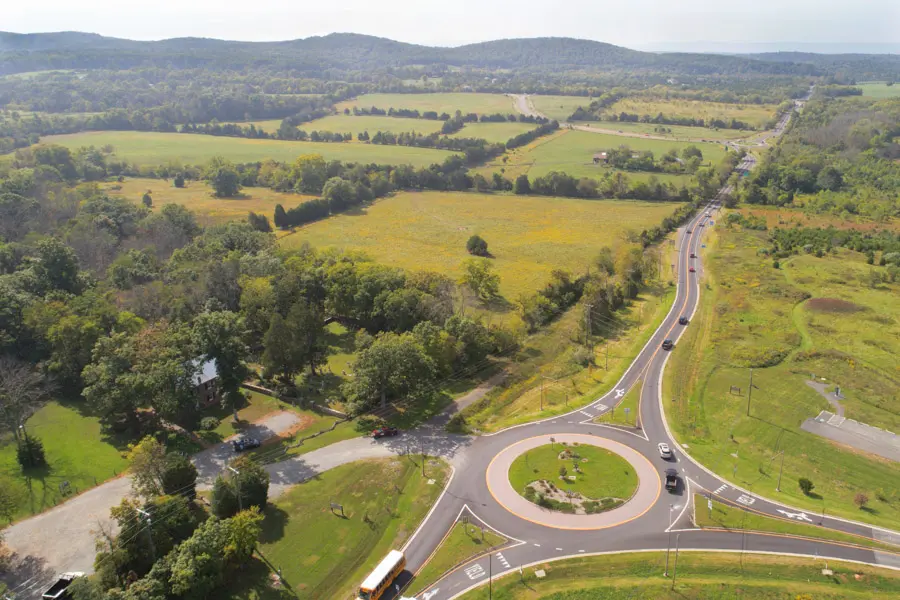
Transportation Changes Proposed on Rt. 50
We are concerned about the potential negative impacts from a Route 50 safety and operations study. We encourage you to continue a legacy of Piedmont activism and attend the public meeting on Feb. 3.
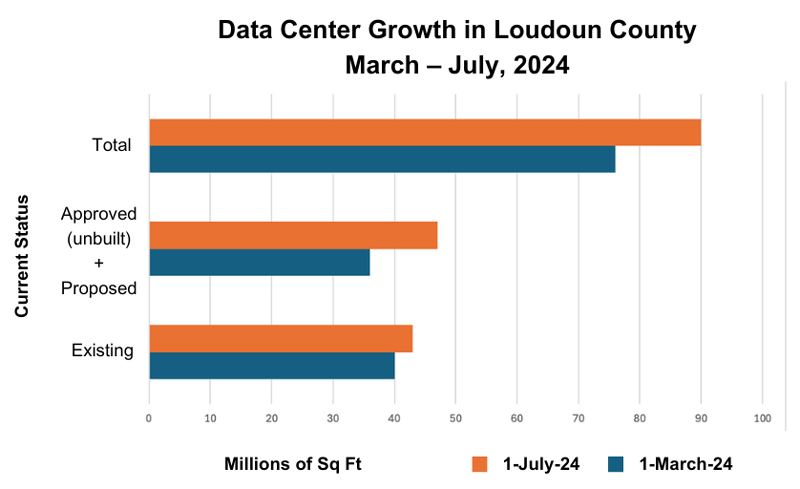
Loudoun Considers Policy and Zoning Changes to Better Manage Data Center Development
We have a real opportunity to improve the process by which data centers are approved in Loudoun County and start to shift away from the unsustainable path we’ve been on. I encourage you to urge the Planning Commission to act quickly on the proposed plan for increasing oversight of data center development.
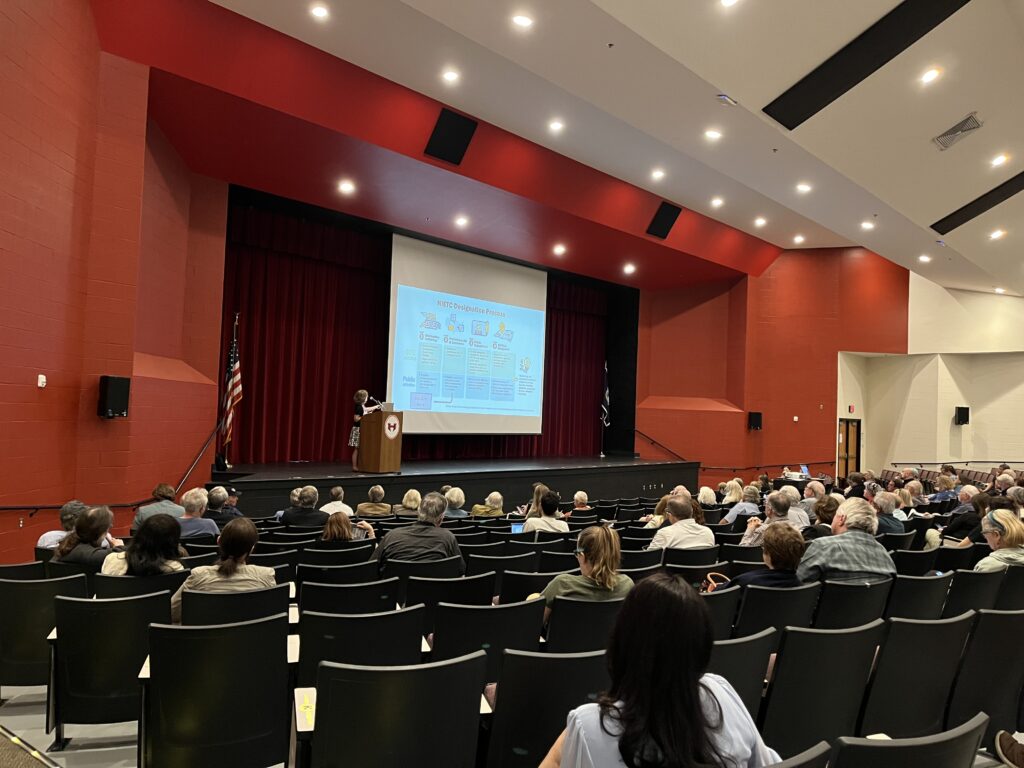
Resources from the Loudoun Community Meeting on Transmission Lines – June 11, 2024
More than 200 people joined us on June 11 for our Community Meeting on Transmission Lines at Heritage High School to learn about transmission line proliferation in Loudoun County resulting from the data center explosion.
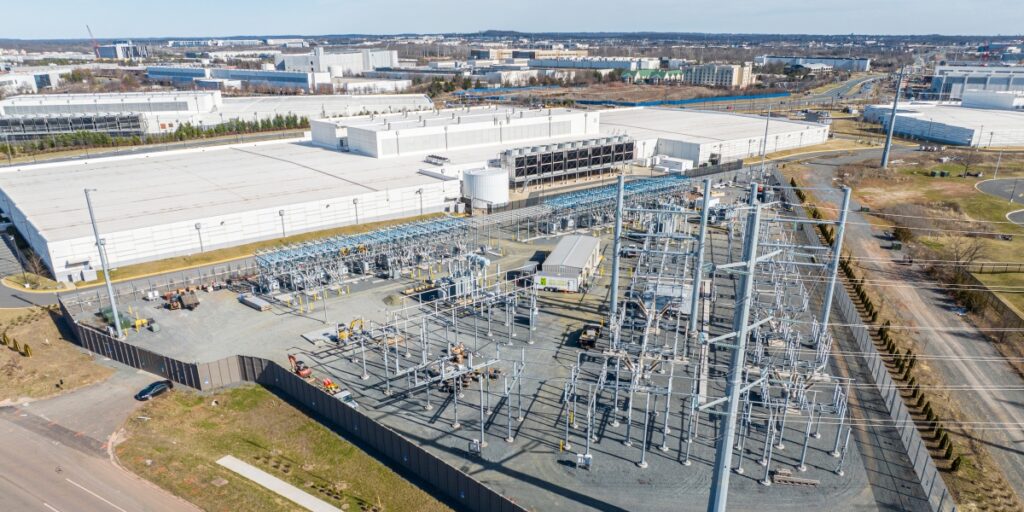
Upcoming Meetings: Data Centers, Transmission Lines
Don’t miss these important public hearings and our June 11 event on new transmission proposals.
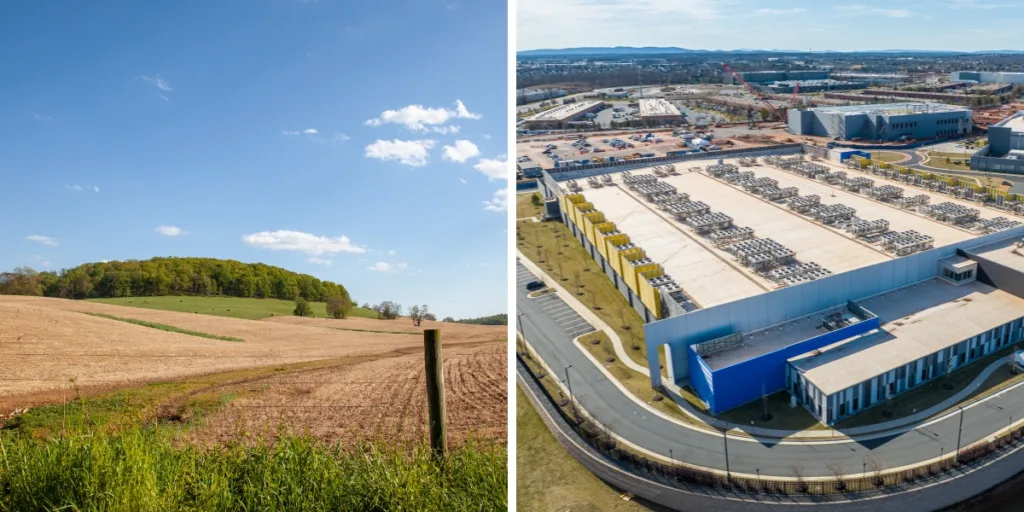
April 10 Public Hearing: Prime Ag Soils, Belmont Data Center Rezoning
On Wednesday, April 10, 2024 the Loudoun Board of Supervisors will vote on the Prime Agricultural Soils and Cluster Subdivisions Ordinance Amendment and the Belmont Innovation Campus rezoning.
Additional Information: Belmont Innovation Campus Rezoning
Often, data center rezoning applications that come before the Board of Supervisors are, in fact, not submitted by data center developers like Meta, Amazon Web Services, etc. Rather, many rezonings are at the request of landowners, real estate investors and speculators who hope for a myriad of profitable business ventures. This may include reselling a property, leasing a property or leasing data center space for other businesses (e.g. Real Estate Investment Trusts (REITS) that build and operate data centers for other businesses).
And while the Board of Supervisors is not responsible for guaranteeing shareholder profit, it is responsible for the welfare of its residents. Therefore, supervisors should consider the following when reviewing rezonings and special exception permits for data center development:
- Existing data center development in Loudoun has already altered the look and feel of the place we call home and threatens more change, from industrializing residential areas to adding new transmission line corridors and substations.
- Statewide climate goals are hindered by the explosive energy demand of the data center industry in Northern Virginia, which now exceeds any other industry in the state. This energy demand has contributed to the need for a fracked gas power plant in Chesterfield Virginia and delayed retirement of coal facilities in West Virginia.
- Also contributing to emissions from Loudoun County is the proliferation of backup diesel generators associated with these data centers. The over 4,000 diesel generators permitted in Loudoun will grow with each new land use approval, contributing to emissions and threatening local air quality and the health of nearby residents if they are used to avoid grid instability.
- Competition for data center development has driven land prices so high that other businesses, including services and retailers, are struggling to locate in the county.
- Over-reliance on this single, globalized industry for its local tax base has created financial risk for Loudoun County and its residents.
In December 2023, the Board of Supervisors adopted new data center standards in its zoning ordinance, recognizing that data center development can negatively affect residents and the look and feel of Loudoun neighborhoods. The Board should do whatever possible to ensure that the new data center standards, or their equivalent, are applied in every applicable case.
In this case, where the applicant has agreed to limit the rezoning request to only the square footage that is permitted by-right, it is appropriate for the Board to ask staff for a deeper analysis to evaluate the following question: Which scenario – this rezoning or a new by-right development – best protects residents, Goose Creek and the grid from future impacts? Conventional wisdom says rezonings with proffers are better, but that may not be true in this case.
If the Board rejects this application, and a new proposal is submitted for the site under the updated zoning standards, the following would apply:
- No data center buildings would be allowed on the A-3parcels, and the GI zoning requirements don’t allow as much intensity of development as the IP zoning category
- Stronger height restrictions would be imposed on buildings adjacent to homes with more design requirements including greater stepbacks.
- Building and parking setback requirements would be larger. For example, under the new standards, the setback of data centers from lot lines would be 200 ft, compared to 100 ft under the rezoning.
- Noise studies and noise protections, lighting requirements and generator testing limitations would be imposed.
- There would be additional protections for trees and native planting requirements.
- A trail along Goose Creek would be required as determined by Loudoun County Parks and Recreation.
The smaller building envelopes allowed under by-right zoning, along with the new standards, could reduce the buildable square footage of data centers on the site from what would be possible under a rezoning.
For all the reasons above, PEC doesn’t support new rezonings and special exceptions for data centers until the CPAM and ZOAM have been adopted. In this particular case, the rezoning gives the developer maximum flexibility without adhering to the new data center standards and maximizes the potential to achieve the full 1.3 million square feet of development. They could also submit a request to amend the proffers in the future to allow even more space, if deemed in substantial conformance. This would not require a whole new data center legislative application and the new standards would still not apply.
Additional Information: Prime Soils Zoning Ordinance Amendment
How will the ZOAM impact me?
The Board of Supervisors has made it very clear that the ZOAM would not reduce – or downzone – the overall density allowable under Cluster Subdivision regulations. As such, property values will not be impacted.
To clarify confusion on the issue, the ZOAM will not impact landowners who want to put their land in conservation easement. Conservation easements are charitable contributions partially offset by tax incentives and credits, and this ordinance will not interfere with that process.
What’s in the ZOAM?
The Planning Commission made many recommendations to the Board of Supervisors when the draft ZOAM was forwarded along in December, many of which PEC supports. (Read the staff report here.)
Items to support:
Recommendation in the ZOAM: 70% of prime soils on any tract to be subdivided should be protected.
Why we’re supportive:
- In the Kimley-Horn study most lots were able to easily achieve the 70% preservation threshold within the already existing requirements to preserve 70% of open space within any cluster subdivision.
- This allows for most of the prime soils located on a subdivision site, along with steep slopes, floodplains, wetlands and historic features to be protected from development.
- We’re specifically advocating to preserve prime soils when there are at least five acres of prime soils on-site (whether contiguous or not), because soils that may lie between non-contiguous acres are also farmable, and often consist of secondary crop/grazing lands.
Recommendation in the ZOAM: Prime farmland soils should be primarily located on Farmland Preservation Lots (FPL).
Why we’re supportive:
- These lots would be put under conservation easement to protect their viability for farming in perpetuity.
- These lots will be used primarily for farming and land-based agriculture; PEC supports county staff’s proposals for permitted uses that focus on these soils.
- Farming in Loudoun is changing but can become even more fibrant
- Farms have shrunk in size, but are growing in number.
- Loudoun’s farmers are leading the Commonwealth in 11 different agricultural sectors including equine, vegetable production and goat farming. We are also first among all Virginia counties for the number of beginner farmers.
- New, young farmers often can’t afford large tracts of land, but the land and soil preserved through this ordinance allow for a wide diversity of direct market farming operations that serve nearby high-value markets.
Items of concern:
Recommendation in the ZOAM: “Savings clauses” in which the Zoning Administrator may approve a reduction of the required percentage of prime soils to be preserved within Preservation Farm Lots to as low as just 30%.
Why we’re concerned:
- Since these clauses cannot be legislated and are not reviewed by the Board of Supervisors, they need to be administered with strict guidelines to avoid a built-in loophole for developers to avoid conserving prime soils during the development process – which would undermine the entire effort behind this zoning ordinance amendment.
- Supervisor Turner proposed an amendment to address this issue. It would require the zoning administrator to support preservation of the largest amount of prime soils possible given individual parcels specific site constraints, i.e. steep slopes, rather than just allow an all or nothing default. We support this amendment and spelling it out in explicit terms is bene to eliminate the clause being misused.
Recommendation in the ZOAM: Drainfields may be located on the lot they are serving or within Open Space Lots, where agriculture can happen.
Why we’re concerned:
- This flexibility for developers to locate drainfields offsite would be difficult to administer effectively, and we question whether it is necessary, given the agreement to increase cluster lot maximum size from two acres to four acres.
- Onsite drainfields are more easily monitored and maintained than offsite ones, thus avoiding health hazards resulting from failing septic systems.
- Drainfields preclude farming activities from occurring on top of them.
Recommendation in the ZOAM: No provisions for HOA restrictions on farming.
Why we’re concerned: It is important to protect Prime Farmland Lots from HOA restrictions on farming, as such, the County should develop and offer an approved HOA template to developers operating in the Rural Policy Area. The ZOAM does not include any provisions for this.
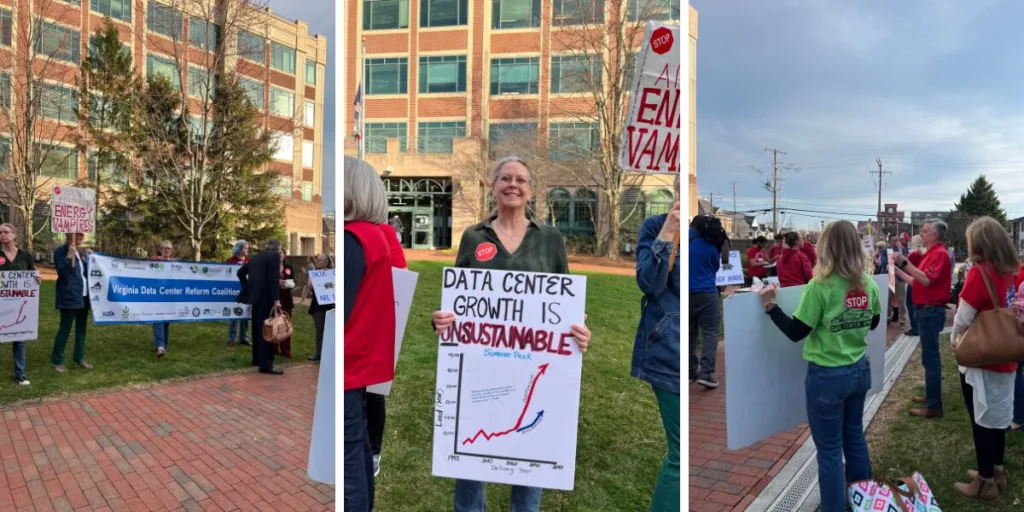
Wednesday’s historic data center denial in Loudoun
As you may have seen in the local news, on Wednesday evening the Loudoun Board of Supervisors voted 5-4 to deny the Belmont Innovation Campus rezoning application.

